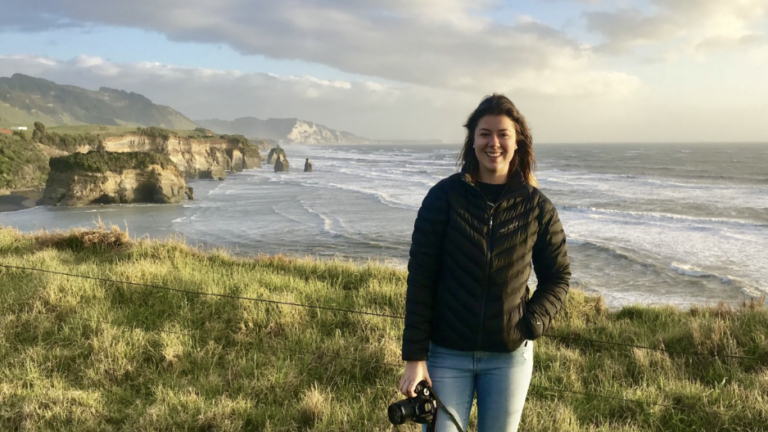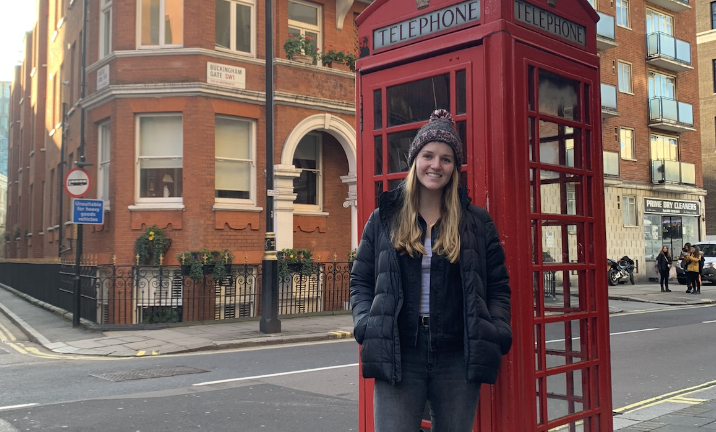Departmental Guidelines
Engineering majors can participate in any of the programs listed below and may receive major credit (subject to your academic advisor’s approval).
Please note:
- Even if your major is not listed under a given location, you may still be able to do major coursework there. Your department may allow you to fulfill your lower division or technical elective requirements abroad. Check the host university’s websites and consult with a study abroad advisor for more information about your options.
- Nomenclature for engineering fields abroad can differ from that used at USC, so be sure to search across multiple departments.
- Technical Electives: Students hoping to fulfill technical electives should carefully review these institutions’ course catalogs for courses options, and are not necessarily limited to the options listed below for their major. Technical electives can be fulfilled across various departments and disciplines abroad.
- Availability of specified field of study does NOT indicate that major/minor credit will be granted. Students must consult with major/minor advisor regarding coursework for major/minor credit.
By major:
- ISE majors: Due to the interdisciplinary nature of the ISE major, ISE students are not necessarily limited to the options listed below for their major, and should conduct a thorough search of the various courses available at these institutions. They should discuss study abroad with their department early on and plan ahead.
- Computer Science:
- Number of major requirements students can fulfill abroad: Typically, up to 4 courses / 16-units.
- Major requirements that can be fulfilled abroad.
- Upper Division Technical Electives for CSCI, CECS and CSBA
- Upper Division Business Electives for CSBA.
- Students must complete their lower division CSCI core courses before going abroad.
- Preferred term abroad: Fall or Spring Junior Year.
- Aerospace and Mechanical Engineering:
- Number of major requirements students can fulfill abroad: Four
- Major requirements that can be fulfilled abroad: Physics, Statics, Dynamics, Fluid Dynamics, Thermodynamics, Technical Elective
- Preferred term abroad: Spring of Sophomore Year
- Biomedical Engineering:
- Number of major requirements students can fulfill abroad: Four
- Major requirements that can be fulfilled abroad: Varies depending on program, but generally includes Technical Electives, Molecular Biology, Organic Chemistry, Physiological Systems, Tissue Engineering. Contact the departmental advisor for an updated list of pre-approved courses.
- Preferred term abroad: Spring of Junior Year
- Astronautical Engineering (BA ASTE):
- Number of major requirements students can fulfill abroad: Four
- Major requirements that can be fulfilled abroad: Physics — (Mechanics, Electricity/Magnetism & Optics/modern physics); Statics — (AME 201 equivalent); Dynamics — (AME 301 equivalent); Dynamics of Fluids — (AME 309 equivalent) *would apply as tech elective; Thermodynamics — (AME 310 equivalent); Technical Electives — (*300 or 400 level equivalent coursework in engineering, physics, chemistry or math).
- Preferred term abroad: Spring of Sophomore Year
- Number of major requirements students can fulfill abroad: Four
Africa & Middle East
- Botswana — Civil | Computer Science | Electrical | Industrial & Systems | Mechanical
- South Africa — Astronautical | Chemical | Civil | Electrical | Industrial & Systems | Mechanical
Australia & New Zealand
- Brisbane — Aerospace & Astronautical | Biomedical | Chemical & Materials | Civil | Computer Systems | Electrical | Environmental | Mechanical
- Canberra — Biomedical | Computer Science | Electrical | Environmental | Materials | Mechanical
- Melbourne — Aerospace & Astronautical | Chemical & Materials | Civil | Computer Science | Electrical | Environmental | Industrial & Systems | Mechanical
- Auckland — Aerospace & Astronautical | Biomedical | Chemical & Materials | Civil | Computer Science | Electrical | Environmental | Industrial & Systems | Mechanical
- Dunedin — Biomedical | Computer Science
UK & Ireland
- Galway — Biomedical | Civil | Computer Science | Electrical | Environmental | Industrial & Systems (options slightly more limited in spring for ISE) | Mechanical
- Brighton — Astronautical | Computer Science | Electrical | Materials | Mechanical
- Bristol — Astronautical | Aerospace & Mechanical | Civil | Computer Science | Electrical | Environmental
- London — Aerospace & Mechanical | Biomedical | Chemical & Materials | Environmental | Industrial & Systems
*Beginning in Spring 2026, students interested in the University of Edinburgh must apply through Viterbi International Programs.

Stephanie Thrift, Univ. of Auckland (ISE)
I’m so grateful that I was able to spend an entire semester abroad as an engineering student. Coming into college I initially assumed that such an opportunity would only be possible by making sacrifices elsewhere (having to graduate late, dropping a minor/PDP program, etc). By working with my academic advisor, though, I was able to enroll in major-equivalent classes at my host university and maintain the graduation schedule I’d originally planned for myself.
Taking major-relevant coursework abroad also presented me with unique professional opportunities that I wouldn’t have encountered at USC. In developing relationships with my professors and peers at the University of Auckland, I now have valuable academic and industry contacts should I decide to continue my educational or professional career abroad.

Molly Solem, Queen Mary Univ. of London (BME)
I took 4 classes while studying abroad: Dynamics, Implant Design, Tissue Mechanics, and Clinical Solutions in Biomedical Engineering and Materials. All four of these courses counted towards my major, with three of them transferring back for course equivalence and one transferring back as a technical elective.
One interesting opportunity that I had through my Implant Design class was a group project in which we designed a metal implant for a spinal fracture patient. It was fascinating to learn about the many types of implants that can be used to treat various injuries and apply this knowledge to a clinical situation. The School of Engineering at QMUL also offers a lecture series every semester where they bring in professionals and researchers from a variety of fields to talk about their area of expertise. During my semester abroad, I attended a lecture by Professor Didier Queloz, a professor at Cambridge University who won a Nobel Prize in Physics in 2019. The talk was about his work in finding new planets and searching for life on other planets in the universe. It was an awesome opportunity to learn about a new topic in a non-classroom setting!

Eve Herzog, Univ. of Melbourne (ME)
At the University of Melbourne, I took classes in four different engineering departments that all counted towards my major requirements. I worked on two group projects and it was an amazing way to get to know other engineering students. By speaking with my professors, I was exposed to new areas of research that USC labs don’t focus on. I also loved how the topics of sustainability and ethics in engineering were infused into all my courses. Getting to explore the city of Melbourne and spending time in the beautiful outdoors on the weekends created a great academic/social-life balance while I was there.
Global collaboration is increasingly common in the field of engineering. After returning from studying abroad, I found that many companies I spoke to appreciated that I had experience working on engineering projects in a global setting. I loved my experience in Australia, and have a feeling I’ll be looking for opportunities to work there in the future.